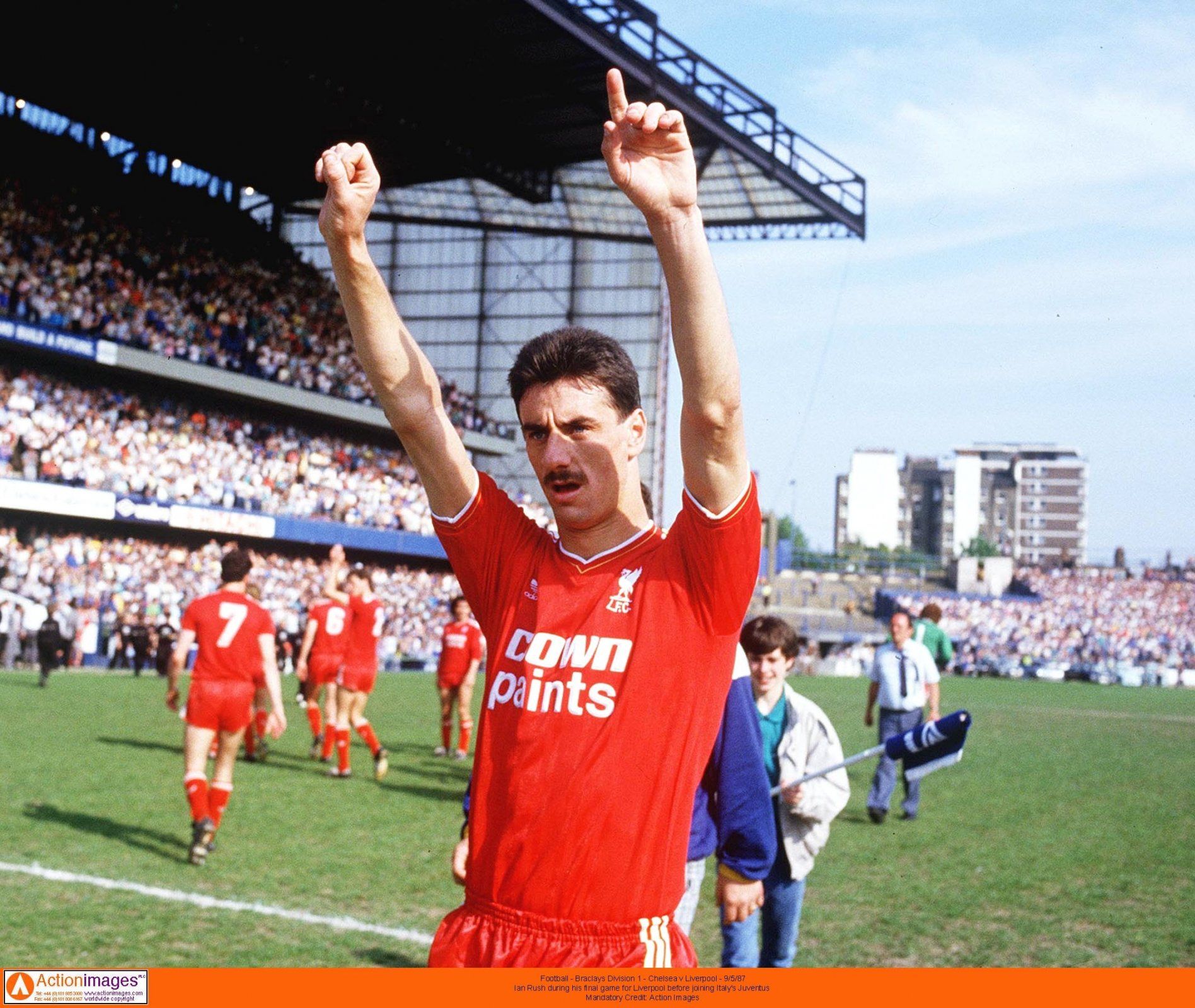[ad_pod ]
Right from the top let’s dispel a long-standing myth. Ian Rush never actually said that his season-long stint in Italy was ‘like living in a foreign country’. It’s a great line and we want it to be true. But sadly it’s not.
Many years later the prolific striker blamed a mischievous Kenny Dalglish for the erroneous quote saying: “When he re-signed me, a reporter asked me, “Why have you come back?” Kenny quipped, “He said it was like playing in a foreign country”. He’s got a lot to answer for!”
All the same though it remains illuminating because in an era when it was highly unusual for a British footballer to ply his trade abroad the comment – displaying a complete ignorance to sporting cultures beyond the English league – was considered plausible. That’s what is of interest. Not whether the Welshman was actually responsible for such a silly utterance, but that people thought he might be.
This was in the late-eighties of course: a few years before the sparkling, brand-new Premier League brought an influx of overseas talent to our shores making it infinitely more cosmopolitan in the process and a couple of years too prior to the game-changer that was Italia ’90. It was a different, smaller world back then.
It was in July of 1986 that the Turin giants swooped for the forward - trademark ‘tache and all - for a British record transfer fee of £3.2m before he was promptly loaned back to Anfield for a further season and this was at a time when English football was decidedly parochial. There were no trequartistas. There was no pasta, only pints. All that mattered really were three things: teams played in a 4-4-2 formation on muddy pitches. Liverpool won the league every year. And Ian Rush fired the goals that won them the leagues.
And oh boy did he score goals. From the moment the Merseysiders signed the skinny 18-year-old from Chester City in 1980 Rush ferreted out chances with an unparalleled instinct and finished them with an unnerving clinical eye. If his second spell at Liverpool is included he fired home 346 goals in 660 appearances, winning every piece of silverware imaginable several times over while his partnership up front with Dalglish has gone down in legend.
Watch Liverpool Live Streams With StreamFootball.tv Below
That was the player Juventus were signing; uprooting him from his parochial hunting grounds to repeat his remarkable potency on sun-drenched Serie A pitches: they were signing arguably the most lethal front-man Britain had ever produced.
How this was possible largely lay in the banning of English clubs from European competition following the Heysel tragedy. Domestic clubs – even the all-conquering Liverpool – were not the financial powerhouses they are today, which left them susceptible to having their best players snatched by the wealthier European elite and that was especially true now as the players in question began to miss pitting their wits against the best the continent could offer. So it was that in the same week that Rush left for Turin, Mark Hughes departed Manchester United for Barcelona.
But back to Hughes’ international team-mate and his joining of a side that had won the Scudetto nine times in their previous 15 campaigns. It was a team packed with household names, not least the majestic duo of Michael Laudrup and Michel Platini. Now they had the deadliest striker around in their company and lord help the rest.
Only it didn’t turn out quite like that, even if to state that Rush’s twelve months on the peninsula was a failure would be to indulge in another long-standing myth; or perhaps, more accurately, a half-myth.
That season Juventus finished a disappointing sixth, trailing to a resurgent AC Milan and Maradona-inspired Napoli. For Rush’s part he scored a respectable number in the circumstances, a number he has defended since: “I didn’t do as badly as everybody tries to make out. I scored 13 league and cup goals in my only season and was top scorer at the club.”
And those circumstances add up. They compile to a mitigating collection in fact.
On his debut against Lecce the player burdened with a huge transfer fee and expectation to score in each and every game pulled a thigh muscle, leaving him side-lined for five weeks. It can only be assumed how difficult those five weeks were given that Laudrup was the only other English-speaking player at the club. Furthermore, Juventus were undergoing a period of transition, having signed seven new players that summer. Indeed the departing Platini even warned Rush of this saying: “You’ve come at the wrong time to Juventus. You should have been here 2-3 years ago when we had a better team.”
Most detrimental of all, however, was the fact that the Old Lady regularly played to stereotype, erring on the side of caution as Rush explained to the Guardian in 2005: “(We) were happy to get 0-0 draws away from home. That negative approach didn't play to my strengths. I would have been better joining Mark Hughes and Gary Lineker playing under Terry Venables at Barcelona.”
In the summer of 1988 Ian Rush returned to the familiar turf of Anfield for a fee of £2.8m and went on to score a further 90 goals in 225 starts. The master was back doing what he did best, doing what he did better than anybody else.
Was his short time in Italy a failure? Harshly put, maybe it was though too much has been made of it since. It occurred in a time of ignorance, when adaptation to another culture – both on and off the pitch – was substantially harder than it is today.
It occurred long ago when the world was smaller, a time that evokes the famous L.P. Hartley quote: the past is a foreign country. They do things differently there.

